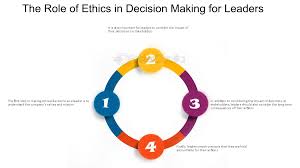In leadership, integrity is one of the most valued qualities. It is the foundation of trust, respect, and transparency in any organization. However, making ethical decisions is not always straightforward. Leaders often face situations where doing the right thing may not be easy, popular, or immediately beneficial. This article explores how leaders can maintain integrity in action, make ethical decisions in challenging situations, and foster a culture of ethical behavior within their organizations.
Introduction: The Role of Integrity in Leadership
Key Concepts: Integrity, ethics, leadership, trust
Integrity is the adherence to moral and ethical principles, even when it is difficult or inconvenient. In leadership, integrity means consistently making decisions that align with ethical values, regardless of external pressures or personal interests. Leaders who demonstrate integrity inspire their teams, foster trust, and create a positive organizational culture where ethical behavior is prioritized.

1. The Importance of Ethical Decision-Making
Key Concepts: Ethical decisions, long-term success, trust-building
Ethical decision-making is crucial for building a strong, sustainable organization. Leaders must make decisions that are not only legally sound but also morally and ethically right. Ethical decisions impact the reputation of the leader and the organization, influencing long-term success and the loyalty of employees, customers, and stakeholders.
Actionable Steps for Leaders:
- Define core ethical principles and values for your organization.
- Make ethical decision-making a priority by aligning business goals with values.
- Regularly assess the ethical implications of decisions before taking action.
2. Navigating Ethical Dilemmas in Challenging Situations
Key Concepts: Ethical dilemmas, conflict of interest, tough choices
Leaders often face ethical dilemmas where they must choose between two conflicting values, such as profit and fairness or loyalty and transparency. These situations can be particularly challenging when there are significant pressures to prioritize business outcomes over ethical considerations. Navigating these dilemmas requires a clear understanding of the organization’s values and a commitment to doing what is right, even when it’s difficult.
Actionable Steps for Leaders:
- Take time to reflect on the ethical dilemma and consider all perspectives.
- Weigh the long-term consequences of each potential decision.
- Consult with trusted advisors or colleagues to gain insight into the ethical considerations of the situation.
3. Building a Strong Ethical Framework for Decision-Making
Key Concepts: Ethical framework, values, principles
A strong ethical framework helps leaders make decisions that align with their core values and the organization’s mission. This framework should guide every decision, from the daily routine to high-stakes situations. Having a well-defined set of ethical guidelines ensures consistency in decision-making and reinforces the leader's commitment to integrity.
Actionable Steps for Leaders:
- Develop a clear code of ethics for the organization that reflects the company’s core values.
- Ensure that all employees are aware of and understand the ethical guidelines.
- Regularly revisit and update the ethical framework as the organization evolves.
4. Leading by Example: Modeling Integrity in Action
Key Concepts: Role model, leadership by example, accountability
Leaders set the tone for their organizations, and their actions speak louder than words. Leaders who demonstrate integrity in their own actions provide a powerful example for others to follow. By consistently making ethical decisions, even in the face of pressure, leaders can build a culture of trust, accountability, and ethical behavior within the organization.
Actionable Steps for Leaders:
- Lead by example by demonstrating ethical behavior in all actions, both big and small.
- Hold yourself accountable for your decisions and actions.
- Be transparent about the decision-making process, especially when faced with difficult choices.
5. Encouraging Ethical Behavior Across the Organization
Key Concepts: Ethical culture, transparency, open dialogue
To ensure that integrity is embedded within the organization, leaders must encourage ethical behavior at all levels. This includes creating an environment where employees feel comfortable raising concerns, reporting unethical behavior, and discussing ethical challenges openly. A transparent and supportive atmosphere encourages employees to align their decisions with the company’s values and ethical guidelines.
Actionable Steps for Leaders:
- Foster open dialogue about ethical issues within the team.
- Create channels for employees to report unethical behavior safely and without fear of retaliation.
- Recognize and reward employees who demonstrate exceptional ethical behavior.

6. Handling Ethical Challenges in High-Pressure Situations
Key Concepts: High-pressure decisions, stress, ethical resilience
In high-pressure situations, such as financial crises, competitive challenges, or organizational changes, leaders may face tough choices that test their commitment to ethical principles. In these moments, leaders must maintain their ethical resilience, relying on their core values to guide them through difficult decisions. Staying true to one’s ethics during stress can prevent hasty, unethical decisions that could harm the organization in the long run.
Actionable Steps for Leaders:
- Remain calm and composed during stressful situations to make sound, ethical decisions.
- Revisit your ethical framework and organizational values during challenging times.
- Stay committed to transparency and honesty, even when the outcome is uncertain.
7. The Role of Accountability in Ethical Leadership
Key Concepts: Accountability, transparency, consequences
Leaders who make ethical decisions are accountable for the outcomes of their actions. This accountability extends not only to their own behavior but also to the organization as a whole. By ensuring that there are clear consequences for unethical behavior and by holding individuals accountable, leaders help maintain a culture of integrity. Transparency about mistakes or ethical lapses is essential in building trust and learning from experience.
Actionable Steps for Leaders:
- Set clear expectations for ethical behavior and hold individuals accountable when standards are not met.
- Be transparent about mistakes or lapses in ethical judgment and take responsibility for corrective actions.
- Ensure that the consequences of unethical behavior are fair, consistent, and aligned with the organization’s values.
8. The Long-Term Impact of Ethical Decision-Making
Key Concepts: Long-term success, reputation, sustainable growth
Making ethical decisions in the short term may sometimes be difficult, but the long-term impact of integrity in leadership is profound. Ethical decision-making fosters trust, enhances the organization’s reputation, and ensures that the business is built on a solid moral foundation. This leads to greater employee loyalty, customer satisfaction, and sustainable growth for the organization.
Actionable Steps for Leaders:
- Prioritize ethical decision-making as part of the organization’s long-term strategy.
- Understand the broader impact of decisions on the organization’s reputation and relationships with stakeholders.
- Reinforce the importance of integrity in every decision, large or small, to secure the future of the business.
9. Learning from Ethical Challenges: Continuous Improvement
Key Concepts: Learning, ethical growth, resilience
Leaders are not perfect, and ethical challenges can serve as opportunities for growth. After facing an ethical dilemma, it is important for leaders to reflect on the decisions made and learn from the experience. Continuous improvement in ethical leadership strengthens the ability to handle future challenges and fosters a culture of learning and resilience.
Actionable Steps for Leaders:
- Reflect on past decisions to identify areas for improvement in ethical judgment.
- Seek feedback from trusted colleagues or mentors about how to handle ethical challenges more effectively.
- Commit to personal and professional growth in ethical leadership.

Conclusion: Integrity as a Cornerstone of Ethical Leadership
Key Concepts: Integrity, ethical leadership, trust
Integrity is essential for effective leadership. Leaders who make ethical decisions in challenging situations not only demonstrate their commitment to doing the right thing, but they also foster a culture of trust, accountability, and ethical behavior within their organizations. By prioritizing integrity, leading by example, and encouraging ethical decision-making across all levels, leaders can build a reputation for honesty, fairness, and long-term success.
Actionable Steps for Leaders:
- Develop and model a strong ethical framework that guides decision-making.
- Encourage transparency, accountability, and ethical behavior throughout the organization.
- Continuously reflect on and improve your ethical decision-making skills.


You must be logged in to post a comment.